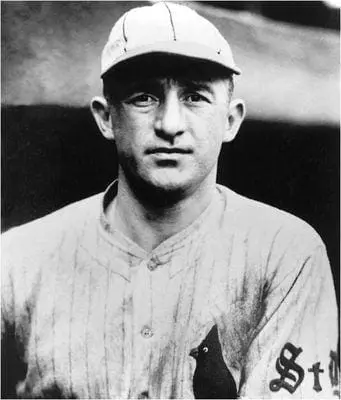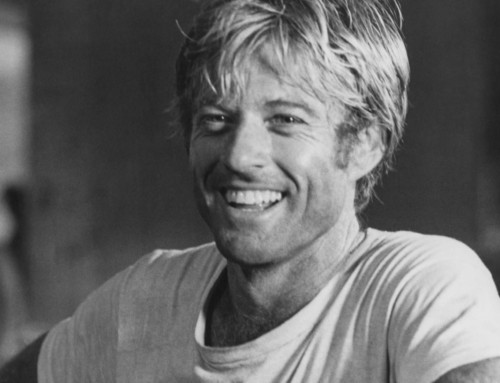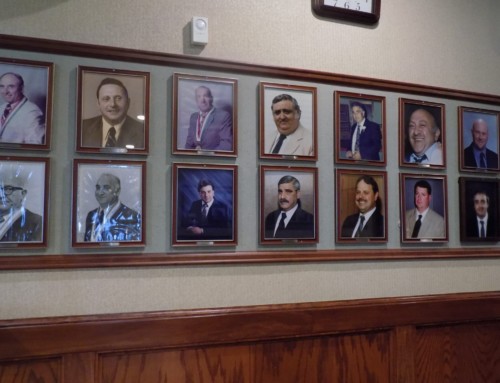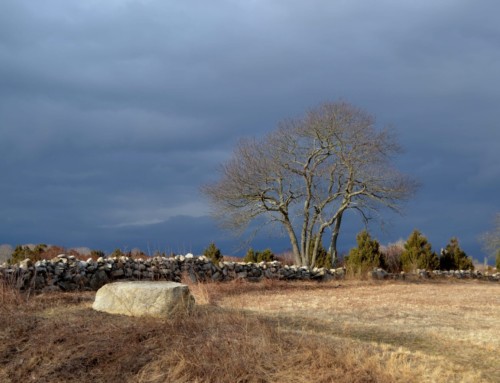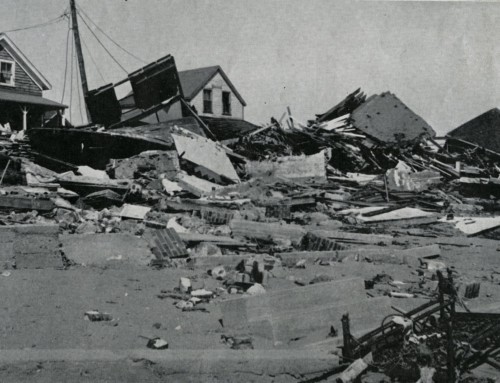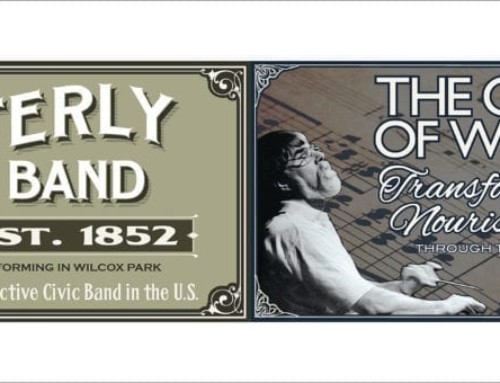In my most recent piece in the ‘Famous Athletes of Westerly’ series, I profiled Eddie Sawyer, a Westerly-born baseball player. In this story, I will be featuring Frankie Frisch, a member of the National Baseball Hall of Fame. Unlike Sawyer, whose story began in Westerly, Frisch’s ends in the Westerly area, which he often called “the best retirement place in the land.”[1]
Frank Francis Frisch was born in the Bronx on September 9, 1898 to Franz and Katherine (Stahl) Frisch. Franz, who was born in Frankfurt, Germany, was a prominent manufacturer of lace in New York City.[2] Franz had assumed that Frankie, the second of his four sons, would enter the family business after finishing college. These plans, however, never came to fruition once Frankie showed his athletic prowess.
From 1911 to 1915, Frankie attended Fordham Preparatory School, a prestigious high-school in the Bronx. It was here that he first exhibited his natural athletic abilities.[3] After graduating, Frisch went on to attend Fordham University, where he was a part of the class of 1920.[4] While at Fordham, Frisch became a star on the school’s track team, earning him the lifelong nickname “The Fordham Flash.” In addition to running track, Frankie also served as captain of the school’s football, basketball, and baseball teams. He was also named the halfback of an All-American team in 1918.[5]
In the spring of 1919, Frisch was signed by the New York Giants, and he joined the club after the school year concluded in June. He was signed to the major league club out of college despite having never played a single game in the minor leagues.[6] While Giants’ manager John McGraw wanted to send Frisch down for fine-tuning, Frankie convinced the skipper otherwise, knowing that if he was sent to the minor leagues, his father would pressure him to join the family business.
McGraw relented, and on June 17, 1919, Frankie Frisch made his major league debut in Chicago, going 0-for-1.[7] Although he did not secure a base hit, he impressed McGraw with his composure and heads up fielding. McGraw played Frisch at second base and shortstop (his college position) in 1919, where his career got off to a rocky start, as he only hit .226. In 1920, however, Frankie was moved to third base, and he responded by hitting an improved .280.[8]
Frisch had a breakout season in 1921, when he collected 211 hits, batted .341, and led the National League with 49 stolen bases while splitting time between second and third base.[9] From 1922 through 1924, Frisch continued his success, batting .335 while averaging 196 hits per season. Due in large part to Frankie’s offensive contributions, the Giants won the National League pennant four seasons in a row from 1921 to 1924.[10] In 1923, Frisch married Ada A. Lucy. The couple did not have any children.[11]
After several seasons of triumph, the Giants began to stumble in 1925, causing Frisch to clash with McGraw, who often berated the star player after difficult losses. Eventually, Frisch decided he had taken enough of his manager’s verbal abuse and left the Giants late in the season. He would eventually return before the season’s end, but the damage caused between the two was irreversible.[12]
After the 1926 campaign, Frisch was traded to the St. Louis Cardinals with pitcher Jimmy Ring for Rogers Hornsby, a future hall of famer.[13] Frisch continued to dominate, finishing the 1927 season, his first with the Cardinals, with a .337 batting average and a league-leading 48 stolen bases.[14] In 1931, he was named the National League’s Most Valuable Player as he led the Cardinals to the National League pennant.[15]
Mid-way through the 1933 season, Frisch was named player-manager of the Cardinals, as they finished the season in fifth place. It was during this season that he played in the first ever All-Star game and became the first National League player to hit a home run during the annual exhibition. In 1934, Frisch led the Cardinals to the World Series, where they defeated the Detroit Tigers.
The team came to be known as the ‘Gashouse Gang,’ because, as the lore goes, the team often appeared shabby and played in unwashed and dirty uniforms. It is said that Cardinals shortstop, Leo Durocher, once proclaimed that his former team, the New York Yankees “think we’re [the Cardinals] just a bunch of gas housers.” During the 1930’s, gas houses were known for their unpleasant smell and their locations close to railroads in the poorer parts of most towns.[16]
Frisch continued his playing career for three more seasons in St. Louis, never again reaching the pinnacle of the baseball world. He retired with a lifetime batting average of .316 while playing in 2,311 games. He also collected 2,880 hits, 1244 Runs Batted In and stole 419 bases. He also played in 50 Worlds Series games over the course of his career.[17]
Frisch would go on to manage the Cardinals until the end of the 1938 season.[18] For the 1939 season, Frisch moved up to the radio booth, performing play-by-play for the Boston Braves. His absence from the field was short-lived, however, as he was named the manager of the Pittsburgh Pirates beginning in 1940, holding the position for seven seasons. The Pirates finished in fourth or fifth place in all but one of Frisch’s seasons as manager, the lone exception being a second-place finish in 1944.[19] Although he was generally well-liked by his players, Frankie became notorious for his dislike of rookies, which often exhibited itself in his harsh treatment of young players.[20]
After being dismissed by the Pirates in September 1946, Frankie Frisch performed play-by-play for the New York Giants while maintaining a home in New Rochelle, New York. He worked in the radio booth for 1947 and part of the 1948 season, before he returned as a coach for the Giants.[21] In 1947, he was voted into the National Baseball Hall of Fame.[22] On June 10, 1949, against the advice of his wife and many of his friends, Frisch accepted the position of manager for the Chicago Cubs.[23] The concerns of his loved ones were not without merit, as the Cubs amassed 141 wins and 196 losses under Frisch before he was fired on July 22, 1951.[24]
After spending the next decade in New Rochelle, Frankie and Ada Frisch purchased a home in Charlestown, Rhode Island on East Beach Road on January 27, 1962 for $8,000.[25] It was in this home that Frankie Frisch would live the remainder of his life. Later that year, they would buy the adjoining land.[26]
After retiring from baseball, Frankie Frisch maintained a relatively low-profile. In 1967, he joined the Baseball Hall of Fame’s Veterans’ Committee. While heading this committee, Frisch used his influence to campaign for membership to some of the hall’s most controversial selections, many of whom were friends or former teammates.[27] I
n 1967, Frisch was also featured in the Newport Daily News, which ran a picture of him on his porch in Charlestown with his two spaniels, Flash and Patches.[28] Every year, Frisch would accompany a group of Westerly Sun paperboys to a Red Sox game and sit in the stands with the boys, leaving his preferred box to someone else.[29] According to sportswriter Gordon Smith “He’s done things for kids that would bring tears to your eyes.”[30]
On January 15, 1971, Frankie’s wife, Ada, passed away in Westerly. The following year, he married Augusta Metcalf Kass.[31] On February 8, 1973, while returning from a Veterans’ Committee meeting in Florida, Frisch’s car had a tire blow out on Interstate 95, causing him to hit an embankment in Elkton, Maryland. Frisch was rushed to the Wilmington Medical Center in Delaware. Sadly, he never left the hospital, where he died from cardiac arrest on March 12, 1973.[32]
On March 14, a funeral was held for Frisch at the Schilke Funeral Home on Granite Street in Westerly. He was interred at Woodlawn Cemetery in New York City.[33] Despite his intense demeanor on the field, Frisch is also remembered for his love of frequenting fine dining restaurants, reading good literature, gardening (his roses were a constant source of pride), and classical music.[34] In April 2017, the Charlestown Historical Society shared a post recalling Frisch’s life in the town, and many replied with fond memories of meeting the Hall of Famer who loved the town.[35]
[su_accordion class=””] [su_spoiler title=”Footnotes” open=”no” style=”default” icon=”plus” anchor=”” class=””]
[1] Obituary, Westerly Sun, 12 March 1973.
[2] Frankie Frisch Biography, Society of American Baseball Researchers, https://sabr.org/bioproj/person/0bbf3136.
[3] SABR Biography
[4] SABR Biography and The Maroon, Fordham University Yearbook, 1919, https://digital.library.fordham.edu/digital/collection/YEARBOOK/id/504/rec/4.
[5] SABR Biography
[6] SABR Biography
[7] SABR Biography
[8] SABR Biography
[9] SABR Biography
[10] SABR Biography
[11] SABR Biography and “Ada E. Frisch, Wife of Baseball Great” Boston Herald, 16 January 1971.
[12] SABR Biography
[13] SABR Biography
[14] SABR Biography
[15] SABR Biography
[16] Wyatt, Daniel, “The Gashouse Gang” The National Pastime Museum, 15 February 2015, https://www.thenationalpastimemuseum.com/article/gashouse-gang/.
[17] SABR Biography
[18] SABR Biography
[19] Baseball Reference Player Page, Frankie Frisch, https://www.baseball-reference.com/players/f/friscfr01.shtml.
[20] SABR Biography
[21] SABR Biography
[22] SABR Biography
[23] SABR Biography
[24] Baseball Reference Player Page, Frankie Frisch, https://www.baseball-reference.com/players/f/friscfr01.shtml.
[25] Charlestown, Rhode Island Land Deeds, vol. 38, pg. 284.
[26] Charlestown, Rhode Island Land Deeds, vol. 38, pg. 292.
[27] SABR Biography
[28] “The Fordham Flash in Retirement” Newport Daily News, 21 June 1967.
[29] Smith, Gordon, “Tip-Off” The Journal Inquirer, 16 January 1969.
[30] Smith, Gordon, “Tip-Off” The Journal Inquirer, 16 January 1969.
[31] SABR Biography
[32] “Baseball’s Famed Fordham Flash Frankie Frisch Dies” The Sheboygan Press, 12 March 1973.
[33] Obituary, Westerly Sun, 12 March 1973.
[34] SABR Biography
[35] Charlestown Historical Society Facebook post, 1 April 2017, https://www.facebook.com/permalink.php?story_fbid=1820122801347346&id=159089990783977.
[/su_spoiler] [/su_accordion]
